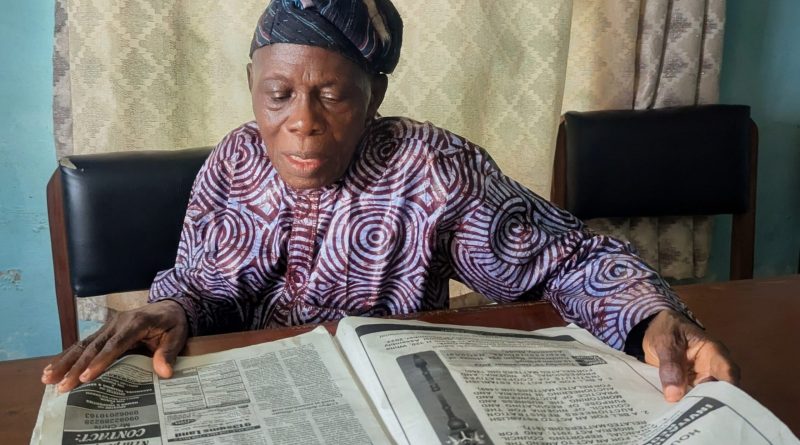Every journalist needs to write a book
Dayo Duyile, former director of the Nigerian Institute of Journalism (NIJ) and current head of the Mass Communication Department of Wesley University, has authored several journalism history books, including the famous ‘Makers of Nigerian Press.’
In this interview with Kemi Busari, he discusses his motivation for documenting journalism history, the challenges involved, and his proposed approach to preserving the history of journalism in Nigeria.
Excerpts:
What factors influenced you to start writing about journalism history in Nigeria?
My interest in the documentation of Nigerian journalism came out of passion. When I began my career in 1960 in southern Nigeria Defender and later moved to Nigeria Tribune, I was told by my editors how Dr. Azikiwe piloted his ambitions in journalism and rose to a statesman.
I normally ask where I can get the history of Azikiwe, and I’m always told to go to the library, but each time I visit the library, I don’t find much about his journalism, but there’s a lot about his politics. So, I developed this idea of looking for the histories of journalists in Nigeria that have contributed to the achievement of political independence or trained other young journalists.
I noticed that these are always in pamphlets and not edited books. I was encouraged when I came across the landmark Nigeria Press by Chris Cooker, which he wrote in 1968.
What methods do you employ in your history work?
In my case, I discovered that writing about Nigeria’s press history should be a continuous exercise because Nigeria Press has gone a long way and is growing steadily with new ideas coming in.
New broadcast stations are established and they have their different philosophies. So one should be interested in the philosophy of all these media houses and their contribution to society.
That lured me into research, and it led me to having interviews with those who have accomplished tremendously in Nigerian journalism. I’ve spoken with many editors and documented their stories.
What are the biggest challenges you’ve faced in trying to document Nigerian journalism history?
The biggest challenges and noticeable ones are the unavailability of historical books of the Nigerian press in the national library and archives. I think this is caused by poor record-keeping because the role of every national library is to ensure that they keep documents and store them for people who would be using them.
The destruction of those documents should be accounted for by the librarian. The books are not well-kept and well-positioned in the library.
The first copy of the Daily Times newspaper is available in Britain and London, and other newspapers are available there too. If you don’t have the means of travelling out as a press historian, what will you do? To solve the problem, one has to contact other foreign libraries.
For example, the British Library in London has so many Nigerian publications from 1800 to date. Another challenge is financial constraint. There’s not enough funding or grants to do historical work. Another challenge to note is that most historians are not drawn to press history in Nigeria. They are either publishing on political development or legal matters.
What are some of the notable gaps you’ve not been able to fill in your work as a journalism historian?
The treatment of journalists by colonialists, especially in Lagos, where anti-colonial newspapers existed. Many went to jail during the colonial days.
Many of their trials on libel cases are extinct. I wanted to look into what took Antony Enahoro to jail six to seven times in his writing and what others wrote that took them to jail. All this I’ve not been able to accomplish, and this is a gap that has not been filled till now.
Even after independence, some journalists were jailed for libel, but some of their newspapers are not available. Another one is finding out why the government goes into newspaper publication despite the fact of availability of independent newspapers. That question has not been answered. What was the philosophy of the government-owned newspapers?
Are there any roles for journalists in bridging the knowledge gap in Nigerian journalism?
Journalists should ensure they properly record their field experiences in a book, because a journalist is a historian. A journalist must write at least one book in their lifetime.
READ ALSO: TRIBUTE: How Prof Joy Ogwu shaped my journalism, soldering careers, By Kingsley Dike
The gaps might have been caused by people neglecting their history, and that gap can only be filled by available documents. Most of the things that happened during the colonial regime, you won’t find in libraries in Nigeria.
Another thing is that sometimes we need to verify because there might be exaggeration in some of the facts, but when you are left with one choice, it is difficult because you are either to use it as a quotation from them or not to publish at all.

